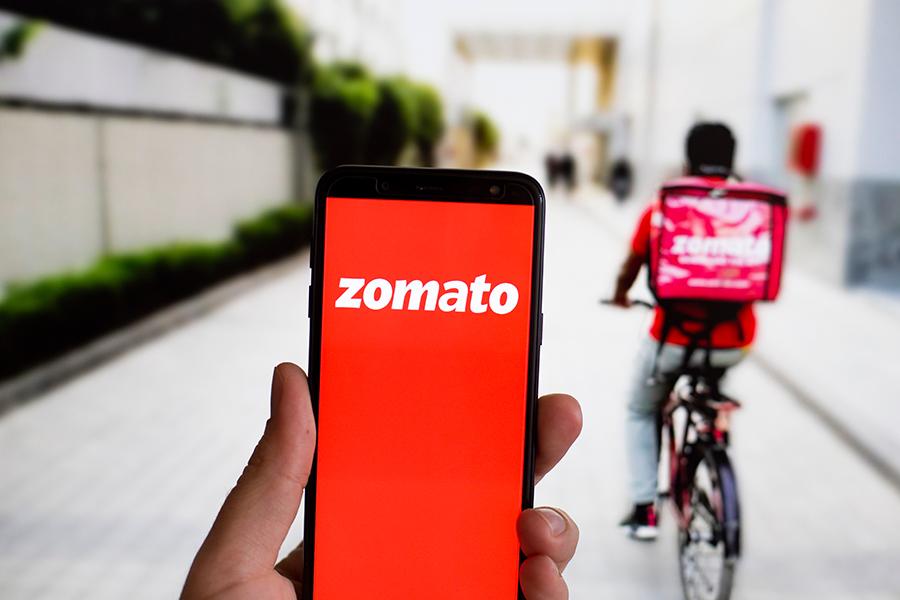Zomato, you have bitten off more than you can chew with video streaming
Four reasons why Zomato Originals could hurt the company's IPO plans in the future
Zomato, Zomato. HSBC earlier this year valued you at $3.6 billion; recently your founder proudly quoted a whopping Rs 200 crore+ monthly revenue for your delivery partners. As you confidently enter the content industry this week, you should know that category is like the G7 of the Internet right now, and with all due respect, you’re New Zealand at best. Here are four reasons why it will hurt your IPO plans in the future:
1. The black hole of investment
Making content is expensive and marketing it in a world of limitless free YouTube content gives even triple digit billion-dollar companies nightmares. Just the final season’s production budget of Games of Thrones was $100 million, while Zomato’s annual revenue was around $200 million (with a whopping $300 million worth of losses). Apple, the new big boy at the table, has reportedly committed a staggering $6 billion to its original video content budget (almost double of Zomato’s total valuation). And with Uber Eats and Swiggy keeping Zomato on its toes with bleeding discounts, it's difficult to understand from where the new investment for this added arm is going to come. And if does, how long will it last till it is redacted like its Infinity dining program.
2. The paradox of paid subscription
To sustain any original content game, a planned revenue model should be in place. Brand collaborations can pay for the first few months, but the promise of sustainability comes only through a subscription model. It’s a jungle out there.
While Netflix India starts at Rs 499 per month, the recently launched Apple TV comes for a meagre Rs 99 per month. Zomato, with just food as a centerpoint, can only hardsell the subscription so much. For Zomato Gold, they were the Netflix of content streaming, a comfortable first-mover advantage in home category; this is a completely tricky, new terrain to survive.
3. The content class
Let’s forget for a second the present losses of Zomato, and focus strictly on the content. The crux of their released listing is a mix of Sanjeev Kapoor (Indian TV's Gordon Ramsay minus the swearing) and a few famous YouTubers. Netflix, on the other hand, already has Emmy award winning food series including Anthony Bourdain: Parts Unknown, Chef’s Table and the MasterChef series. Netflix specials such as Midnight Diner: Tokyo Stories, which weaves 20 minutes of humane storytelling into each episode, around a special Japanese cuisine, is breathtaking. So… as the first investor often asks, what are you bringing to the table? Please don’t say vertical format videos. Instagram launched them last year.
4. Clarity of purpose
Amazon Prime Video and Amazon e-commerce are individual entities marketed together. There is sense in that. Now imagine another scenario: If Amazon thinks that when a customer comes looking for denims, they should show a standup comedy special around menswear, sponsored by Levi's, will it work? Nope.
Zomato, you are missing the basic insight of a customer journey. Your audience has compartmentalised lifestyle. The monthly 70 million active users Zomato boasts of, open the application for a quick order in or unlock a Zomato Gold deal inside a restaurant. For original content, they would probably rather binge Hell’s Kitchen at Hotstar on their smart TVs, while eating that delicious burger delivered to them.
Facebook understands customer insights best; Facebook is the yellow pages of friends, Instagram the trendier hangout joint and WhatsApp for those long conversations. Zomato needs that kind of clarity. Even its competitor, Uber, markets Uber Eats and Uber cab services with separately. The venn diagram intersects but doesn’t eclipse.
Zomato has jumped too late in a category, with what seems like half-cooked intentions. Zomato Originals as part of their social media content plan would have worked effortlessly, but marketing it as a standalone app feature where brands pay for eyeballs is far fetched. What this new feature will do is inflate the distance between cost and revenue even further, hurting their stock prices if and when they finally launch their IPO. Alibaba and Sequoia Capital should fund Netflix, Amazon Prime or Hotstar in India if they want a bite of the irresistible OTT. For just like social media and ecommerce, eventual duopoly over here too is inevitable.
Views expressed are the author's own. The author is a chief strategist and founder, Salt and Paper Consulting. He is also a visiting faculty of Advertising & PR at Indian Institute of Mass Communication, New Delhi. You can reach him at abhik@saltandpaper.co
The thoughts and opinions shared here are of the author.
Check out our end of season subscription discounts with a Moneycontrol pro subscription absolutely free. Use code EOSO2021. Click here for details.

